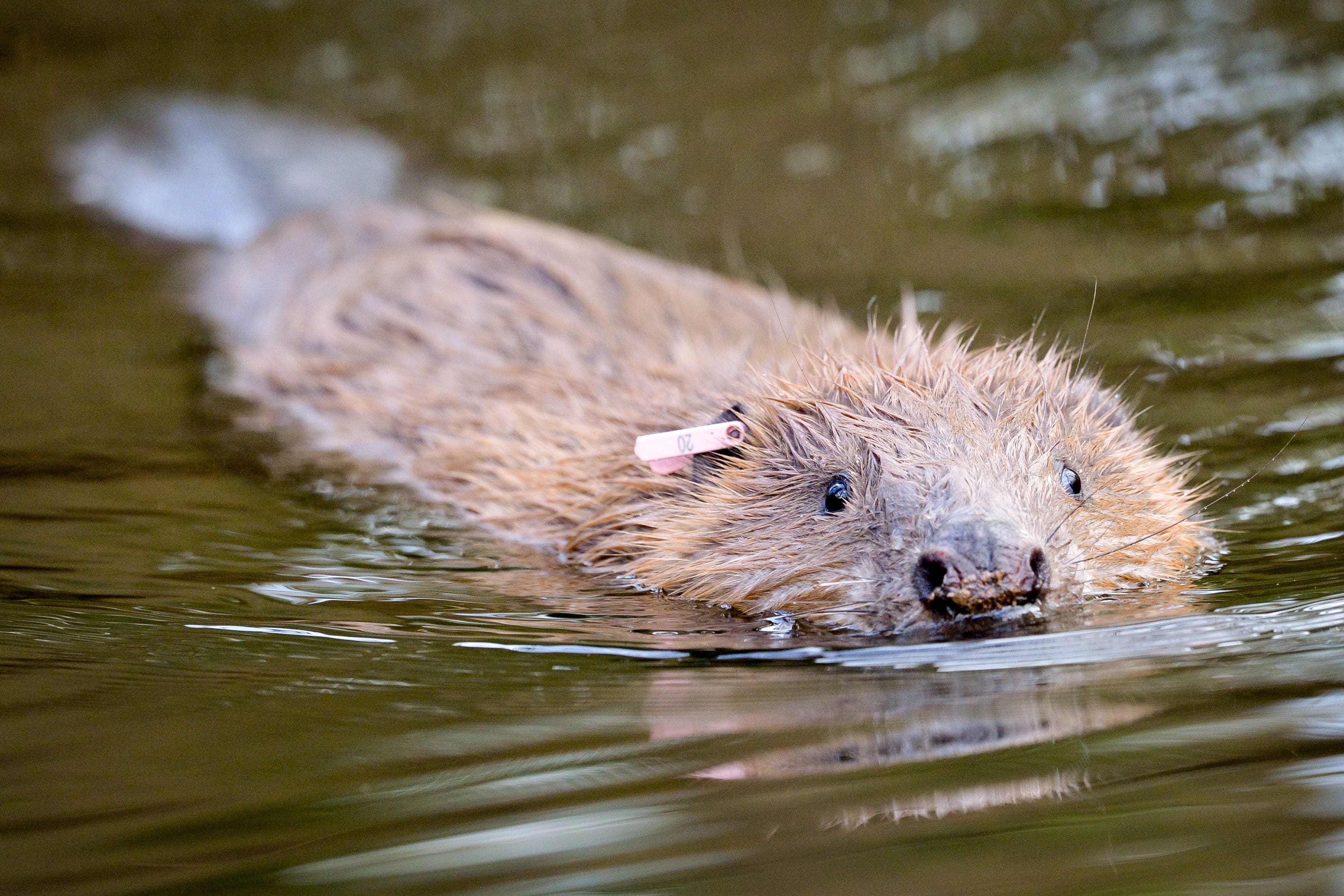Compensate farmers for ‘high-risk’ species reintroductions, MPs say
The Environment Food and Rural Affairs Committee wants the Government to create a priority list of species by January 2024.

The Government should compensate farmers or land managers when “high-risk” species are introduced that could damage land or livelihoods, a House of Commons committee has said.
Along with a national strategy for reintroductions in which priority species would be identified, the Environment Food and Rural Affairs Committee said compensation should help alleviate concerns of farmers who may be affected by effects such as beavers creating dams and wetland.
In a new report called Species Reintroduction, the committee also said animals should not be reintroduced and given protected status without a full management plan being in place, as happened with beavers.
The committee wants the Government to create a priority list of species by January 2024 as it said a lack of clarity is creating confusion among conservationists, landowners and farmers.
The protected status of beavers should be reviewed – and there should be much wider and more transparent consultation on any other potentially risky species reintroductions
It said the current system is “overly bureaucratic” when it comes to reintroducing low-risk species including plants, fungi and insects and that there should be a long-term vision for the species the Government supports and justification for the ones it does not.
This lack of clarity has meant that applications to reintroduce beavers in the wild are still not open despite them being designated as a protected species in October, the committee added in its report.
Trudy Harrison, minister for natural environment and land use, said she does not believe reintroductions to be a major part of nature’s recovery, preferring that the Government focus on habitat restoration instead.
Chair of the committee, Sir Robert Goodwill, said: “The current arrangements for reintroducing species are completely inadequate.
“At one end of the scale, many farmers and other land users would love to know which low-risk plants, birds or maybe insects they could help to prosper – but we don’t yet have a Government-approved list they can even look at.
“But at the higher-risk end, there was nowhere near enough planning or consultation from Government before the protected status of beavers was granted, for example.
“Beavers can cause problems for farmers by re-directing rivers and flooding agricultural land.
“The protected status of beavers should be reviewed – and there should be much wider and more transparent consultation on any other potentially risky species reintroductions.”
As part of its inquiry, the committee visited Bavaria to see how farmers have been living with beavers since their reintroduction in the 1960s.
The committee said there are more than 1,000 beaver consultants in place to minimise conflicts and advise on how to mitigate negative effects and that compensating farmers for damage to crops such as maize and sugar beet amounted to 450,000 euro a year.
Having rapid response consultants, as well as a compensation scheme, would be the best way to alleviate farmers’ concerns in the UK, the committee said.
A Defra spokesperson said: “We will carefully consider this report’s recommendations into species reintroductions and will respond to the committee in due course.”
National Farmers’ Union deputy president Tom Bradshaw said it was “reassuring” to see the committee’s report reflecting concerns about the “significant impact” reintroductions could have.
He added: “We also recognise that many species could be beneficial and aren’t at all controversial.
“It is important that the Government now takes into consideration these recommendations and look into how species being reintroduced are controlled and how compensation is payable for additional costs.
“We look forward to working alongside them to ensure responsible decisions about species reintroductions are taken and incorporate the farming communities’ views.”
Last year the Government committed to restoring 30% of nature by 2030 and the committee said species reintroductions can help achieve this as well as benefiting local communities through improving the environment, encouraging tourism and restoring ecosystems.
Joan Edwards, director policy and public affairs for The Wildlife Trusts, said: “Government has set ambitious targets to halt and reverse the decline in species because it understands that nature underpins our economy and our wellbeing, so it needs to be far more proactive in supporting the return of key ecosystem engineers like beavers.
“It’s essential that Government now puts in place support to farmers to help them make space for nature on their land, and confirms its intention to facilitate the return of beavers – alongside multiple other lost and declining species – if we are to meet Government targets, international obligations, and most importantly, the needs of our society for a thriving, wildlife-rich world.”
Bookmark popover
Removed from bookmarks